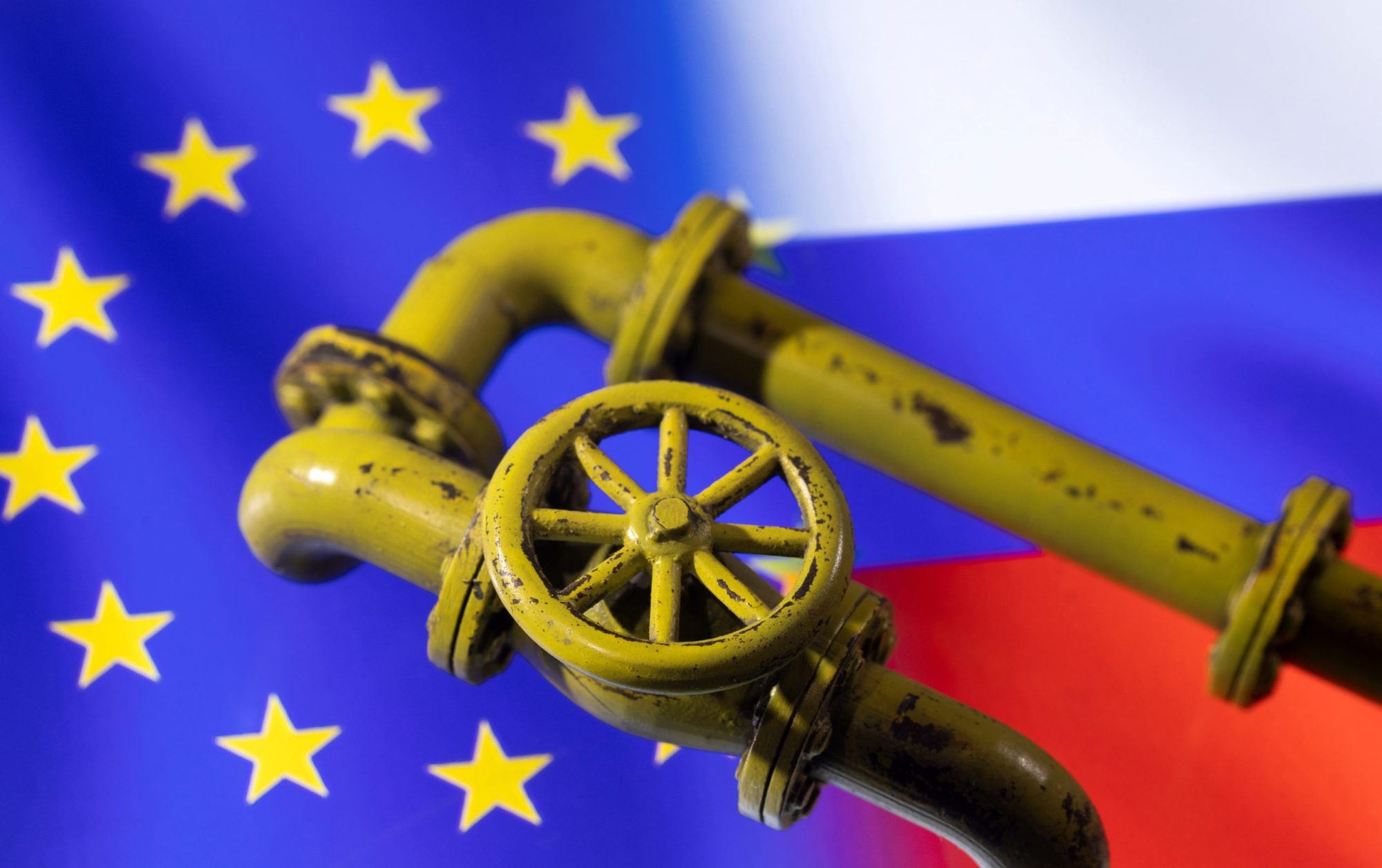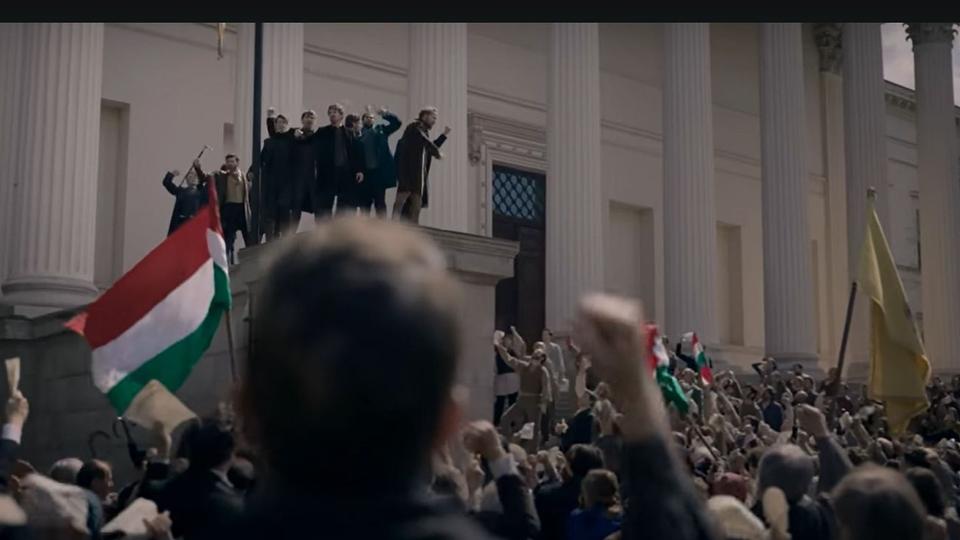From Pressure To Pause: Trump's Influence On The US And EU Response To The Ukraine Crisis

Table of Contents
Trump's Weakening of Transatlantic Alliances
Trump's presidency significantly weakened transatlantic alliances, creating a less unified and less effective response to Russian aggression in Ukraine. This damage stemmed from two primary areas: eroding trust in NATO and straining relations with EU member states.
Eroding Trust in NATO
Trump's repeated criticisms of NATO, coupled with his questioning of the US commitment to the alliance, severely undermined transatlantic unity.
- Withdrawal threats: Trump openly threatened to withdraw the US from NATO, leaving allies feeling vulnerable and uncertain about American support.
- Questioning burden-sharing: He consistently criticized European allies for not contributing enough financially to NATO's defense budget, further straining relationships.
- Undermining NATO's credibility: His rhetoric cast doubt on the alliance's effectiveness and purpose, weakening its overall credibility on the world stage.
This weakened the collective response to Russian aggression. A fractured NATO struggled to present a united front, hindering the effectiveness of sanctions and other collective measures against Russia. The uncertainty sown by Trump's actions emboldened Putin and contributed to a perceived weakness in the West's resolve.
Strained Relations with EU Member States
Trump's confrontational trade policies and diplomatic clashes with individual EU countries further fractured the EU's ability to present a united front on Ukraine.
- Trade tariffs: His imposition of tariffs on European goods damaged transatlantic trade relations and fostered resentment among European leaders.
- Disputes over the Iran nuclear deal: Trump's withdrawal from the Iran nuclear deal alienated key European allies who had supported the agreement.
- Criticism of the EU: His frequent criticisms of the EU as an entity, particularly its trade practices and immigration policies, fueled distrust and division.
This fractured relationship hampered the EU's ability to coordinate a strong and unified response to the Russian invasion. The lack of internal cohesion within the EU translated into a less effective collective response to the crisis.
Ambivalence Towards Russia and Putin
Trump's ambivalent stance toward Russia and Vladimir Putin significantly impacted the West's response to the Ukraine crisis. His actions fostered a perception of weakness and emboldened Russian expansionism.
Public Displays of Admiration for Putin
Throughout his presidency, Trump repeatedly displayed a surprising level of admiration for Putin, downplaying Russian aggression and hesitating to criticize his actions.
- Examples of praise: He frequently praised Putin's strength and leadership, offering compliments that were widely seen as inappropriate given Russia's human rights record and aggressive foreign policy.
- Reluctance to impose sanctions: Trump was often hesitant to impose sanctions on Russia, even in response to clear violations of international norms and agreements.
- Downplaying Russian interference in US elections: He consistently downplayed or dismissed evidence of Russian interference in the 2016 US elections, further undermining the West's credibility in addressing Russian malign activity.
These actions sent a clear signal to Putin that he could act with impunity, emboldening further Russian expansionist ambitions.
Uncertainty Regarding Sanctions and Deterrence
Trump's inconsistent approach to sanctions and his reluctance to forcefully counter Russian actions created uncertainty and fostered a perception of weakness.
- Examples of delayed or weakened sanctions: Sanctions were often delayed or weakened, limiting their effectiveness in deterring further Russian aggression.
- Lack of strong deterrents against Russian aggression: The lack of a clear and consistent response to Russian actions fostered a sense that the West was unwilling or unable to effectively counter Russian expansionism.
This lack of decisive action contributed to the escalation of tensions and ultimately emboldened Russia to invade Ukraine.
The Impact on Information Warfare and Disinformation
Trump's presidency significantly impacted the information environment, creating fertile ground for Russian disinformation campaigns and hindering effective countermeasures.
Trump's Promotion of Russian Narratives
Trump's rhetoric often mirrored or aligned with Russian disinformation campaigns, contributing to confusion and undermining the credibility of Western intelligence.
- Examples of echoing Russian propaganda: He frequently repeated narratives pushed by Russian state media, often without evidence or critical analysis.
- Casting doubt on US intelligence findings: He consistently questioned and undermined the findings of US intelligence agencies, contributing to a climate of distrust and uncertainty.
This helped to create a climate of uncertainty, making it more difficult to counter Russian disinformation and build a unified response to the crisis.
Erosion of Public Trust in Institutions
Trump's relentless attacks on the media and intelligence agencies eroded public trust in these institutions, hindering the effective response to disinformation campaigns.
- Examples of attacks on the press: He frequently labeled critical media outlets as "fake news," eroding public trust in legitimate journalism and making it harder to disseminate accurate information.
- Undermining the credibility of intelligence agencies: His constant attacks on the intelligence community undermined their credibility and made it more difficult for them to effectively counter Russian disinformation.
This weakened public support for decisive action against Russia and made it harder to build a unified response to the crisis.
Conclusion
Trump's presidency significantly influenced the US and EU's response to the Ukraine crisis. His actions weakened transatlantic alliances, emboldened Russia, and complicated the West's ability to respond effectively. His ambivalent stance toward Russia, coupled with his attacks on democratic institutions and promotion of disinformation, created a climate of uncertainty and division that hampered a unified response. The Ukraine crisis underscores the vital importance of strong transatlantic alliances and a unified approach to foreign policy. Understanding the legacy of Trump's presidency is crucial for preventing similar situations in the future. Further research into the long-term consequences of his policies is needed to strengthen future responses to geopolitical challenges and better understand the impact of Trump's influence on the US and EU response to the Ukraine crisis.

Featured Posts
-
 Newcastle United Supporters Championship Play Off Choices
May 13, 2025
Newcastle United Supporters Championship Play Off Choices
May 13, 2025 -
 Byd Leading The Ev Battery Revolution A Case Study Addendum
May 13, 2025
Byd Leading The Ev Battery Revolution A Case Study Addendum
May 13, 2025 -
 8 Godini Ot Osinovyavaneto Na Blgarsko Kuche Ot Dzherard Btlr
May 13, 2025
8 Godini Ot Osinovyavaneto Na Blgarsko Kuche Ot Dzherard Btlr
May 13, 2025 -
 Leonardo Di Caprio And His Dating Life Dispelling The Myths
May 13, 2025
Leonardo Di Caprio And His Dating Life Dispelling The Myths
May 13, 2025 -
 Mozik Es A Csillagaszati Gazsik Di Caprio Peldaja
May 13, 2025
Mozik Es A Csillagaszati Gazsik Di Caprio Peldaja
May 13, 2025
